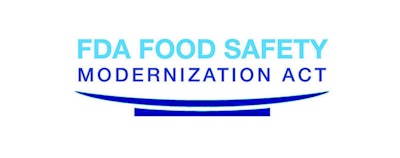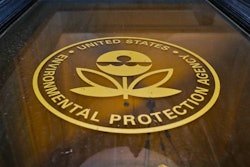
 Bill Bremer
Bill Bremer Melody Ge
Melody GeThese days, there are increasing concerns regarding imported products and whether their safety and quality attributes are meeting United States standards.
As one of the newly added Food Safety Modernization Act (FSMA) requirements regulated by the FDA, the Foreign Supplier Verification Programs (FSVP) rule requires all importers and brokers to be responsible for their foreign suppliers through enhanced supply chain management. Correspondingly, all foreign suppliers must comply with the food safety requirements regulated by the FDA under the FSMA Preventive Controls (PC) rule.
This article summarizes the key elements in the FSVP rule and provides some tips for implementation.
What Is FSVP?
FSVP is one of the most important rules added to FSMA to improve the safety of human and animal foods from outside of the U.S. It requires all importers in the U.S.* to monitor and manage their foreign suppliers through hazard analysis, supplier qualifications and verifications.
The FSMA final rule on FSVP was published on November 27, 2015, and the implementation began on May 30, 2017. There are six key elements for this FSVP rule:
- Hazard Analysis of Foreign Supplier and Product
- Foreign Supplier Approval
- Foreign Supplier Verification
- Foreign Supplier Reevaluation
- Importer Identification
- Recordkeeping
Who Is Responsible For FSVP?
Any entity that imports food products and handles the U.S. customs entry filing as a U.S. owner or consignee is deemed responsible by the FDA for complying with the FSVP rule. These entities — defined as FSVP importers — must be located in the U.S.
Note that the FDA recognizes New Zealand and Canada food safety systems as equivalent to those in the U.S. American entities that import food products from either of those two countries are exempt from performing a hazard analysis or conducting a verification and approval evaluation for those suppliers.
How Can Importers Prepare To Implement FSVP?
In general, by implementing FSVP, importers shall consider themselves part of the product-producing party and make sure all foreign suppliers are monitored and managed. Here are some quick tips for FSVP preparation and implementation:
1. Foster Effective Communication
Communication between supply chain members is essential for FSVP compliance. A key component of an effective FSVP program is cooperation between foreign suppliers and U.S. importers. Importers should explain and discuss with suppliers what changes need to be enacted and how those changes may affect their partnership and daily business. During program implementation, regular communication and conference calls should be held between importers and suppliers to ensure understanding of progress and to resolve any potential time issues.
2. Understand Current Supply Chain Conditions
Similar to a food manufacturer who produces food products, FSVP requires importers to conduct hazard analyses of suppliers according to the FSMA Preventive Control rule. Beyond evaluation and verification programs, this ensures hazards are being monitored and controlled. It is important to enhance the supply chain to validate all potential hazards are minimized during processing, transportation and product import. To accomplish this, an understanding of suppliers is crucial. Identify suppliers by product category, country and region. Then prioritize suppliers by both product and supplier risks, including supplier history, recalls, facility conditions and business records.
3. Develop A Master Document Register Checklist For All Approved Suppliers
Another key element for successful FSVP implementation involves documents and records, including supplier HACCP plan, hazard analysis protocol, supplier verification procedure and other related documents. A master document register checklist will be helpful not only for communication purposes with suppliers, but also for FDA inspectors. Information included on the checklist may include, but is not limited to, the following example:
|
Supplier Name |
Date Established |
Address |
Country |
Primary Contact |
Products |
Hazards |
HACCP Plan |
Verification Method |
Recall History |
|
|
|
|
|
|
|
|
|
|
|
|
|
|
|
|
|
|
|
|
|
|
4. Be Confident And Ready When FDA Inspects
FDA inspection will be a new activity for foreign suppliers and perhaps for some U.S. brokers/importers. However, it should not be as concerning as it may appear once compliance requirements are met. Prior to an inspection, all documentation must be assembled and organized, including proper controls of all document records. Prepare for when FDA inspectors are onsite, do what is asked by FDA to keep the inspection simple and straightforward, and help ensure the process is smooth for the inspector. After the inspection, make sure non-conformities are corrected and documented according to allocated time, and communicate the results to business partners.
In conclusion, FSVP was added to FSMA with the intention to maintain high safety and quality standards for all food products sold in the U.S., regardless of their place of origin. Doing so requires both importers’ and foreign suppliers’ cooperation. Be familiar with your business partners’ programs, always keep potential hazards in consideration and make sure expectations are well-established with suppliers. Ultimately, the implementation of FSVP is a good measure for continuously improving the food safety culture wherever finished products are produced and imported.
*Some exemptions may apply. Exempt food products include:
- Juice and seafood that are regulated under FDA HACCP rules
- Low-acid canned foods
- Alcoholic beverages
- Products are not intended for sale in the U.S.
- Products regulated by USDA
- Products are transshipped in the U.S.























